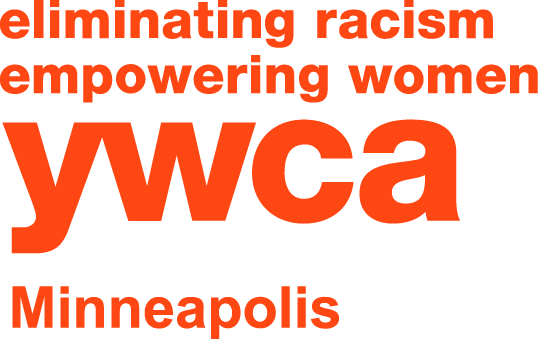50 Years Later: The Legacy of Dr. Martin Luther King, Jr.
Q&A with Rubén Vázquez, Vice President of Racial Justice and Public Policy at YWCA Minneapolis
Q: What does Dr. Martin Luther King, Jr.'s work mean to you?
A: For me, Dr. King’s work is a symbol of struggle. He, along with other people in that movement, put themselves in front of a very dangerous, oppressive and racist system. It was this system, in my opinion, that killed him. As a person of color and as an immigrant, Dr. King’s work is very personal to me. Even though I have lived in this country for over 39 years, have a great job, am educated, and have done what I am “supposed” to do, I continue to be judged based on the color of my skin and not the content of my character.Dr. King had a wife and kids, yet he knew that the work he needed to do was bigger than himself and his family. That resonates with me. We must work to change the oppressive system for our whole community, not just for the few.
Q: How have things changed from Dr. Martin Luther King, Jr.'s time to now?
A: Honestly, I don't know if things have changed that much. Have we made some progress? Sure, I guess. When the Civil Rights Act was signed back in the sixties; when the integration of schools took place, many people, especially white people not directly affected by systematic, oppressive systems felt things were great. Fast forward to 2008 when we elected the first African American president, a lot of people thought: We got it now. I mean heck, we have a black president! We fulfilled Dr. King's dream. But then you start peeling back the onion, start digging into the layers and start having deep conversations with people who have been continuously oppressed by these systems, and you quickly realize that the movement has not ended and it is still very much needed.
Q: How has the movement for racial justice changed?
A: As I mentioned, I don’t believe the movement has ended. Has it changed? Yes, I believe it has. The current movements such as Black Lives Matter, #MeToo and the March for Our Lives are about equity as a whole; they represent LGBTQ+ rights, women's rights, immigration rights, education rights, healthcare rights, etc. There are movements going on today because I think people are realizing that it is not just about one thing. It is about equity for all and trying to achieve equal rights at the same time.
Q: Why is Dr. Martin Luther King, Jr. so revered today, when at the time, his work was heavily criticized? How does that relate to the way activists are seen today?
A: Activists who do this work today are seen as troublemakers and highly criticized. Are they “troublemakers?” No! Are they disruptors? YES, because that is exactly what they're doing. Activism in itself is meant to disrupt the status quo.I believe Dr. Martin Luther King, Jr. is seen differently today versus the activists we see on TV or on the streets. Many of us were too young back in the 50s or 60s to experience the work of Dr. King first-hand. Many of us today were not directly involved in that movement. Therefore, we have forgotten Dr. King was a disruptor of the status quo. People are more aware of the activists of today, because they directly impact people’s lives, cause inconveniences; people have to deal with traffic, roads being closed, the inconvenience of shopping at the mall or not being able to go to the State Fair. This inconvenience prompts them to pay attention and hopefully to think broader than just about themselves.
Q: Why do you think it's important to still talk about Dr. Martin Luther King, Jr. and his work?
A: The work is not done. We still live in a world that continues to oppress people simply because of the color of their skin, their sexual orientation, their gender, their immigration status, so on and so forth. I mean, the list is humongous, right?Because the conversations must continue to happen, we are hosting community conversations to honor Dr. King’s legacy and talk about how to continue his work. For us to continue to tear down systematic barriers, first we need to be aware that they exist. We need to acknowledge them. We need to be able to work together. We need to understand what role each of us plays in this movement. I'm hoping that these conversations will help us lead the way.
Q: How can people work toward Dr. King’s vision in their everyday lives? What are some things people can do?
A: If you are a member of our white community, challenge yourself to be out of your comfort zone and ask questions. Don't just be an ally to communities of color, but be more than that – be a co-conspirator with communities of color. Understand the privilege that you have and use that privilege to help those without these privileges.For our communities of color, be open-minded that white counterparts who are part of this work are here to help us. The enemy is not our white counterparts. It is much bigger than one individual, it is a system.
Q: Anything else?
A: Getting involved does make a difference. Be a part of something bigger than just yourself. The most important thing is to stand together because that's the only way we're going to make progress.
Take Action Today in Honor of Dr. King
- Attend a YWCA Minneapolis Community Conversation
- Sign the pledge to commit to a year of peace and action
- Share this article on social media using #MLK50 and include what Dr. King’s work means to you
- Learn more about the 50th commemoration of Dr. King’s assassination
- Donate to YWCA Minneapolis to support racial justice in our community
